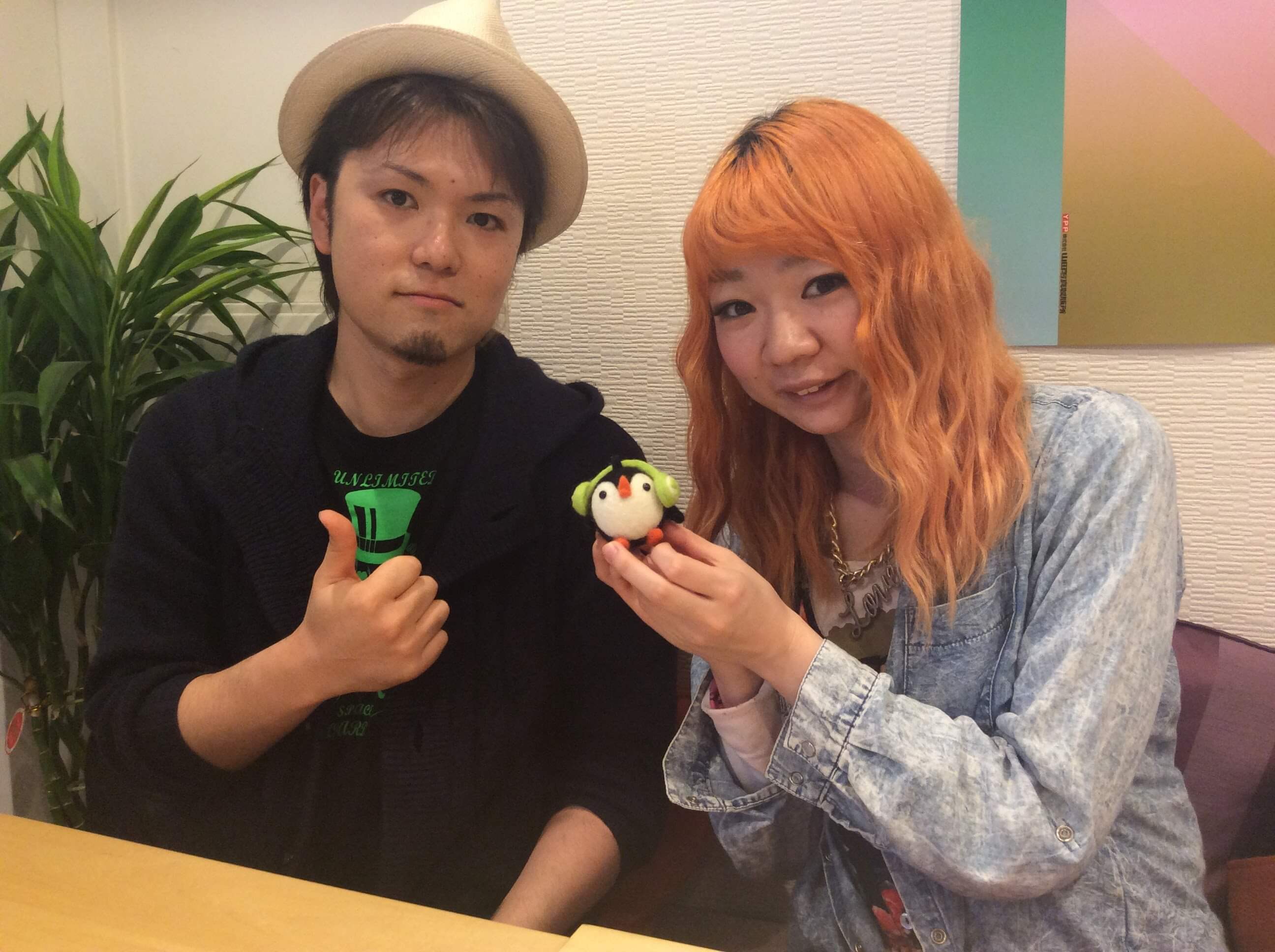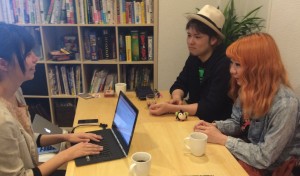rhythm – ILU GRACE interview

We interviewed Kazu and Ayane from ILU GRACE, whose song “rhythm” is included in the new update to Lyriko for learning Japanese.
Masako (interviwer), Kazu, and Ayane
– How many people are in your group, and how do you work?
Kazu: Basically, it’s just the two of us. Ayane is the vocalist and plays the keyboard, and Kazu is the drummer. Ayane writes the lyrics and melody, and we both do arrangements together. We create the melody and lyrics separately and then combine them, but sometimes they both come out at the same time.
– Where are you from, and how did you meet?
Ayane: I was born in Miyazaki prefecture in Japan.
Kazu: I was born in Los Angeles, and then grew up in Miyazaki, too. We met in Tokyo through music events.
– When did you decide to become musicians?
Ayane: I wanted to be a musician when I was really young. I decided I wanted to be a singer when I was in second grade. My father was a jazz guitarist, and I started piano when I was four. Actually, my name, “Ayane,” has a Kanji character meaning “sound.” I started to go to vocal training school in high school, and sometimes I was on a radio program run by my teacher.
Kazu: I also started learning piano when I was in fourth grade, and I started drums in middle school. It was really fun and I was getting famous in our area.
– What inspires you when you creating songs?
Ayane: I started to listen to Western music like the Beatles, influenced by my dad. After that, I started to listen more to Western music and R&B more. When I started making music by myself, basically I express more Japanese style songs, but after I started with Kazu, we basically just write the music that was influenced by Western R&B and black contemporary music.
Kazu: I was also inspired by Western music, but we filter and express it in our own way. Sometimes, painting inspires us. Actually, I can see sounds as a colors. It’s like a painting; I can add a color and reduce another, like I’m drawing.
– I see, that’s why your songs feel global and not only Japanese!
Kazu: Recently, we toured internationally, and I felt I should learn English more using Lyriko! Ayane’s voice training teacher suggested the tour, and we decided to try to go overseas. We were really wondering if our style of music would be accepted by people in other countries, but most of them enjoyed our music, which was really nice. When we played in the US, the audience enjoyed it quietly, but when we played in France, they were really excited and shouted. It was surprising for us. We’d like to tour in the US more.
– How did you make “rhythm?”
Ayane: When you have someone who’s important to you, sometimes there are problems. The message is that in those situations, you don’t need to try to be strong. You can show your real feelings or weakness.
– Which kind of problems did you imagine when you wrote the lyrics?
Ayane: I’d like the listeners to think about it, and they can decide for themselves. The strongest feeling in these lyrics is “I’d rather meet you as I am,” meaning the real me, not the fake me. Please feel this message while listening. The key word is of course “rhythm.” In Japanese, it sounds more like “rizumu.” Even though those are same words, the pronunciation is a little bit different. Please pay attention to that, too.
– What would you like to say to Lyriko players learning Japanese?
Ayane: When I’m singing, I don’t pronounce every sound separately – more like fitting the melody naturally. I’d like listeners to feel the natural sound of Japanese. Lyriko is a fun tool. While you’re listening to music, you can play a game, too. Please enjoy Japanese through Lyriko!
Thank you so much, Kazu and Ayane! Readers can find their latest information and can download more songs from their website ilugrace.syncl.jp

